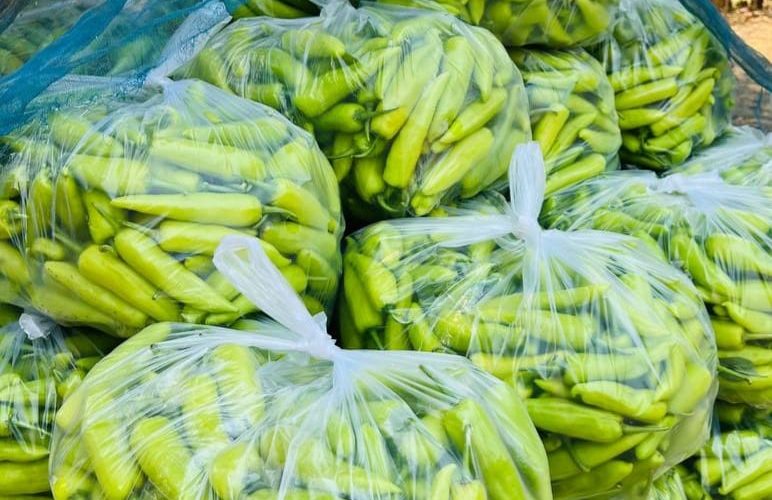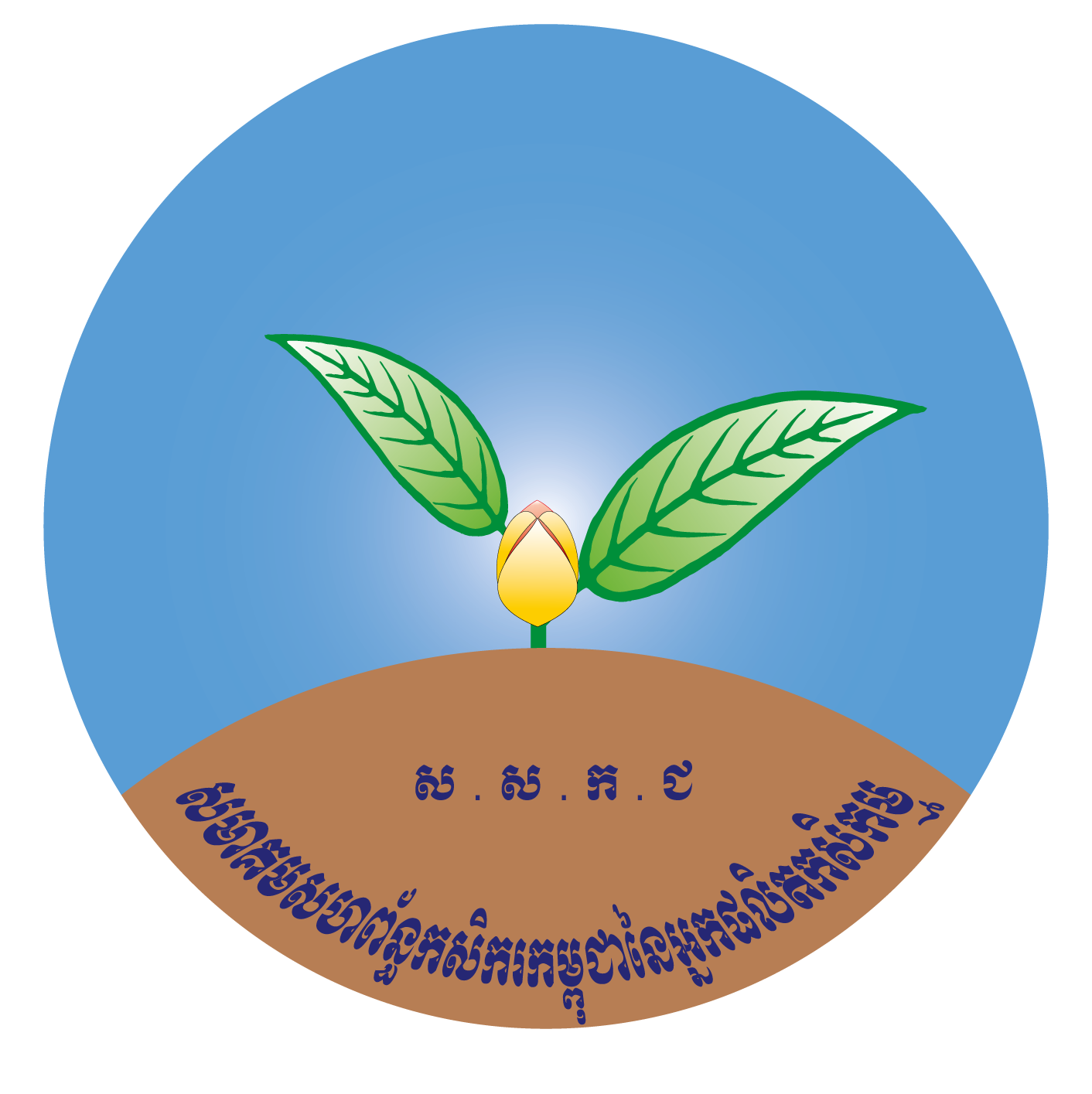
CONTRACT AGREEMENT HELPS PROTECTION SMALLHOLDERS FROM EFFECTS OF MARKETS AND PRICES INFLATION
In order to improve the capacity of smallholders to continue agricultural activities to survive their family properly during the effects of Covid-19 pandemic and impacts on climate change in recent years in particular the flash flood in 2023, therefore the Cambodian Farmer Federation Association of Agricultural Producers – CFAP Cambodia has strategized to strengthen members’ organizations and producer groups in network to support on contract agreement development designs for those interested and capable farmers’ organizations to sign contract agreements with big buyers. So far, there were various commodities have signed contract agreements including cassava, chicken and rice for collective sales and purchases at the target areas, especially those farmers’ organizations in Battambang, Banteay Meanchey, Siem Reap and Pailin provinces. The contract agreement aims to engage smallholders to markets with support from the local authorities, provincial department of commerce and provincial department of agriculture forestry and fisheries to ensure the collaboration between farmers’ organization and the company. The contract agreements made after conducting a multi-stakeholder platform meeting at the respective target areas and the parties agreed to collaborate for sales and purchases collectively. From 2022 till 2023, CFAP – Cambodia has jointly prepared 248 contract agreements with other actors in the project value chain for 297 farmer groups in the four provinces with total amount of 12000tons of mixed vegetables and animals and costs about 13 million US dollars.
Previously, there was no such kinds of contract agreement collectively between smallholders and companies and farmers always faced problems with markets, and the prices were always fluctuated in harvest season which smallholders are not profitable properly because most farmers have small farm size from 250 square meters to 5000 square meters, in particular vegetable farmers and farmers grow mostly in dry season (November to April) while in rainy season most farmers cannot grow vegetables well because it is easy to get flooded, and finally their crops will be damaged if flood took long time.
When there is a contract agreement between farmers and big companies, farmers could expand their farm size a bit bigger respectively by following agroecological practices including climate smart agriculture (CSA) to improve both quantity and quality to meet contract agreements and the prices are also higher than normal sales of about 300 Riels (USD0.075) to 500 Riels (USD0.125) per Kilogram, it depends on the advanced discussion between farmers and big buyers with coordination from CFAP – Cambodia. Even though, most of smallholders still apply traditional practices with low yield. They need to build specific agricultural technical skills such as agroecological practices, naturally friendly agriculture, climate smart agriculture, participatory guarantee system (PGS), CAM gap, CAM organic, geographical indication (GI) and some other standardized practices that farmers are satisfactory to smallholders in the future. Applying new agricultural practices in particular agroecology (AE) always helps farmers to get a premium price rather than chemical practices in particular high markets such as big malls, marts and entertainment places where people consider about safe and healthy foods, especially those who have medium and high living standard conditions and those who understand about importance of safe and healthy foods for their health as there is a medical saying said that “We had better eat real foods rather than eating medicine as foods”. To help smallholder farmers produce safe and healthy foods to feed people, therefore we need to ensure that smallholders get access to farming incentive and agriculture must be profitable for family farmers.
Based on CFAP’s experiences with farmers for these 22 years, especially smallholder farmers they are not profitable properly from their farming activities that’s why agriculture in Cambodia cannot attract the rural youth to work for agriculture, instead they look for non-agricultural jobs in the cities, some also migrated to find jobs in other countries because they can earn money better and quicker than agriculture to survive themselves and their family. Learning from their experiences on agriculture, climate change, markets and difficulties on farming activities, the rural family farmers now understand the importance of education and they want their children to have higher education in the future because they believe that education is a key to unlock the barriers of poverty for the rural family farmers and their farming communities in the future.
However, farmers’ organizations in Cambodia still depend much on external support to provide capacity building to farmers while farmers, especially smallholders are not capable to rent training services yet. Almost all farmers are not well educated and they have very low education level. In this regard, farmers’ organization like CFAP – Cambodia in collaboration with development partners and other actors play key roles to build the capacity of farmers and members’ organizations and farmers’ organizations in network. Moreover, the roles of farmers’ organization need to mobilize resources from other partners, development agencies, and governments to strengthen farmers and farming communities to ensure that they can sustain agriculture and improve agricultural production to meet increased food demands.
Smallholders also get interested in applying new technologies such as dripped irrigation system and net house that can enable family farmers to do farming in a year-round with much reduction of production costs and reducing labor while most farmers now are aging, so modernized agricultural technologies would be helpful for old aged farmers as well as to attract youth in agriculture in the future.
In conclusion we learned that engaging smallholders to markets through contract agreement will enable farmers, especially smallholders to sustain agriculture, increase agricultural production to meet market demands in particular local food demands have increased notably and also help to increase incomes for smallholders as well. Since 2019 till 2023 CFAP – Cambodia has also facilitated farmer members to get access to additional market opportunity through engaging farmer members with the weekly markets organize weekly by the provincial department of commerce at most of the AIMS target project areas.
Multi stakeholder platform meeting helps greatly for smallholders to discuss with big companies, relevant stakeholders including local authorities, agricultural technical experts and service providers and other actors to explore more business matching for collective sales and purchases collaboration.
Contract agreement can also help avoiding farmers from effects of other future disturbances such as the pandemic. This will consistent with the policy support of the Royal Government of Cambodia to export agricultural products nationally and internationally with sustainability.
